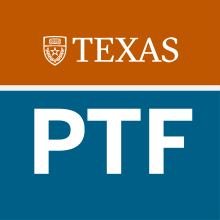Individual Fellow Initiatives

Compassionate Pedagogy and Experiential Learning
The primary goal of this project is to enhance student engagement and participation in the learning environment, especially those who have may have been marginalized by conventional approaches to teaching. This project aims to support, encourage, and train faculty to incorporate compassionate pedagogy (CP) and experiential learning (EL) into their teaching, with the goal of promoting student connection and faculty creativity.

Mentored 2 Mentor
This project focuses on training Clinical Audiology Doctoral students (AuD) to be clinically certified supervisors upon entering the field post-graduation. According to the American Speech-Hearing Association (ASHA), Texas ranks 48 out of 50 states for the number of clinically certified audiologists who are needed to supervise doctoral students in order for those students to have ASHA-approved hours (https://www.asha.org/siteassets/surveys/audiologist-and-slp-to-populati…).

Clinical Advancement in Simulated Environments
Among the communication disorders considered to be fundamental to the scope of practice for speech-language pathologists, stuttering or what is also commonly referred to as a fluency disorder has historically been and continues to be the disorder for which most speech-language pathologists report minimal to no clinical or academic exposure and/or competency.

Dynamic Practice and Assessment System for Statistics Course(s)
Mastery of the use and interpretation of statistical techniques requires a lot of practice. Similarly, statistics is only mastered with a lot of practice. However, instructors unfortunately only have a finite amount of time available to create an endless supply of new problems and associated answers. They also do not have an endless amount of time to provide hints to help students find their own way past their misconceptions. In addition, it is very difficult for students to receive immediate feedback to understand what they are doing and what they need to do.

Peer Learning Assistant Program Guidelines and Curricula
The Peer Learning Assistant Program within the Department of Chemistry is a program developed with resources from the Provost Teaching Fellows program to enhance the educational experience of students taking general chemistry by training and employing Peer Learning Assistants (PLAs) to service large blended general chemistry courses. The large (300 –500 students) blended courses have replaced the straight lecture model with active, student centered, learning. Active learning requires coaching and in a large class it is impossible to implement with only one instructor and one tea

